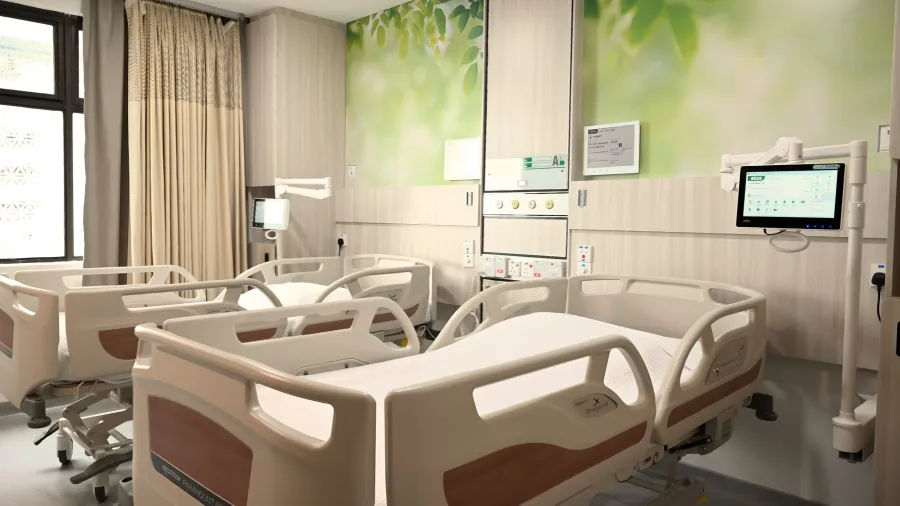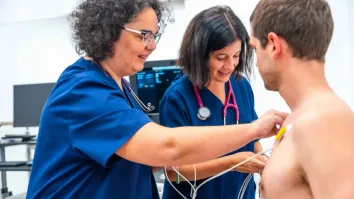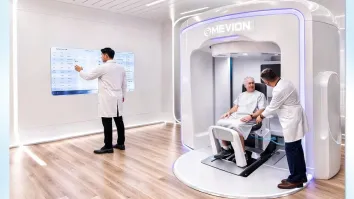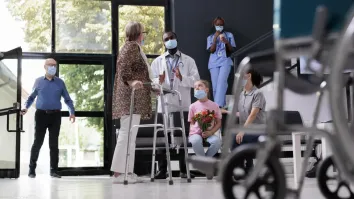
Mahkota Medical Centre uses smart wards to speed up care
The system gives nurses an extra hour and 34 minutes per patient for caregiving.
Imagine a hospital where a patient’s vital signs are monitored in real-time and alerts staff of any critical changes so they can respond in seconds. Malaysia’s Mahkota Medical Centre (MMC) is one such hospital.
“Devices used to monitor blood pressure, pulse rate and temperature are directly linked to the hospital’s system,” MMC CEO Teo Chin Yee told Healthcare Asia.
The hospital’s smart ward system, which was developed by the hospital’s nursing informatics team and information technology experts, is also connected to electronic medical records.
“This system reduces manual entry by nurses, which not only saves time but also minimises the risk of human error,” Teo said. “While the investment in this is significantly higher, we do not charge extra.”
The smart wards are mainly for patients undergoing operation or radiology procedures, Teo said. Each patient has access to a bedside terminal — a tablet — to interact with the system for requests like water.
Each bed is fitted with an e-paper display that informs nurses about a patient’s condition, such as whether they are at high risk of falling or on a specific diet.
Teo, who started as a medical laboratory scientist at MMC, said this saves 37% of nurses’ time, giving them an extra hour and 34 minutes per patient for caregiving. “We also track overall experience, with 90% of patients reporting greater satisfaction in the smart ward.”
The terminals let doctors show patients their X-rays, right at their bedside. “It also enables them to track their operation schedules,” Teo said.
But the shift to integrated processes such as smart wards also has challenges, including bridging the gap between IT professionals and healthcare staff, she pointed out. “Another challenge was training our nursing team, which consisted of about 300 to 400 nurses.”
Though most of MMC’s beds have not been converted into smart wards, the system has been installed on computers across all wards, requiring nurses from different departments to adapt.
To overcome these challenges, the centre partnered with Taiwan’s Chang Gung Memorial Hospital, which inspired MMC’s smart wards processes, Teo said. “Chang Gung Memorial Hospital has shared its expertise and provided IT experts to help us accomplish this project.”
Teo said they have also worked with MMC’s sister hospital in Johor to test the system’s adaptability. “We had to ensure the processes and programmes we designed apply to both institutions.”
MMC has eight wards, all of which will be fully converted into smart wards within the next 18 months.
The Malacca-based hospital’s plans to evolve into a smart facility extend beyond next-generation wards, Teo said. “We have begun work on our smart operating theatre project.”
Given the complexity of scheduling surgeries, she noted that most of it is pretty much done manually. “It mostly involves managing staff, assigning equipment, and coordinating doctor schedules.”
"The next phase of the operating theatre project is synchronising these processes by integrating technology, automation, and data-driven systems to create a Smart OT workflow," Teo said. “It will also integrate with our Central Sterile Services Department.
"This project should be ready within two years," Teo said.



















 Advertise
Advertise






